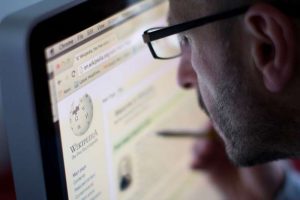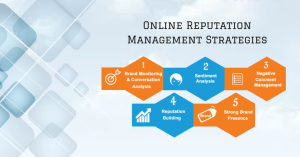Remember the days when sharing knowledge meant writing a book or teaching a class? Thanks to the internet, we can now share knowledge in ways that would have been unthinkable a few decades ago. One of the most significant developments in this area is collaborative editing, where people from all over the world can work together on projects in real time.
Online wikis, like Wikipedia, have become some of the most popular platforms for collaborative editing. With millions of articles, Wikipedia is the world’s largest encyclopedia and one of the most visited websites. But collaborative editing doesn’t just happen on Wikipedia. Many other platforms, including Google Docs and GitHub, allow users to work together on projects in real time.
The rise of collaborative editing is transforming the way we share knowledge. Today, instead of relying on a single author or an expert in a particular field, we have the opportunity to draw on the knowledge and expertise of many people. As a result, we can create content that is more accurate, more comprehensive, and more up-to-date than ever before. In this article, we’ll explore the benefits of collaborative editing and how it is changing the way we share knowledge.
The Rise of Collaborative Editing
Collaborative editing has emerged as a powerful tool for harnessing collective intelligence. With the advent of the internet, online wikis have become popular platforms for individuals to collaborate, contribute, and edit content collectively. Wikipedia, the epitome of collaborative editing, has transformed the landscape of knowledge sharing by providing a platform where anyone can actively participate in creating and refining information.
Empowering the Masses
Wikipedia editing has opened the doors of knowledge creation to the masses. It empowers individuals from all walks of life, regardless of their background or credentials, to contribute to the global knowledge base. By utilizing active voice and encouraging direct participation, Wikipedia editing allows individuals to become active agents in the creation and dissemination of knowledge. This inclusivity fosters a diverse range of perspectives, resulting in a more comprehensive understanding of various topics.
The Guardians of Quality
Behind the scenes of Wikipedia’s collaborative editing lies a dedicated community of editors. These passionate volunteers, along with professional Wikipedia editors, play a vital role in maintaining the integrity and reliability of Wikipedia’s content. With their commitment to accuracy, they diligently review edits, fact-check information, and ensure adherence to Wikipedia’s policies and guidelines. Wikipedia editors, both professional and volunteer, act as the guardians of quality, striking a balance between the dynamic nature of collaborative editing and the need for accuracy and verifiability.
The Power of Crowdsourcing
Collaborative editing in online wikis harnesses the power of crowdsourcing. By tapping into the collective intelligence of a diverse community, wikis like Wikipedia have become vast repositories of knowledge. The wisdom of the crowds ensures that information is continuously refined, updated, and expanded, allowing for a more comprehensive and up-to-date understanding of the world. Through collaboration, we leverage the diverse expertise and perspectives of contributors to create a richer tapestry of knowledge.
Balancing Inclusivity and Quality Control
One of the key challenges in collaborative editing is striking a balance between inclusivity and quality control. While the open nature of wikis allows for widespread participation, it also brings the risk of inaccurate or biased information. Wikipedia addresses this challenge through a system of checks and balances, where the collaborative process is complemented by the vigilance of editors and the adherence to strict editorial policies. This delicate balance ensures that while knowledge is accessible to all, it is also subject to scrutiny and review.
You May Also Be Interested to Read About:
Do Your Company Need Reputation Management?
The Challenge of Controversial Topics
Collaborative editing encounters its fair share of challenges, particularly when it comes to handling controversial topics. Diverse perspectives and conflicting viewpoints can lead to edit wars or disputes. Wikipedia addresses these challenges by fostering a culture of respectful discourse and providing clear guidelines for resolving disputes. Through effective communication, compromise, and adherence to policies on neutrality, Wikipedia strives to present a balanced and unbiased view of controversial subjects.
Ensuring Accessibility Across Languages
Collaborative editing has the power to democratize knowledge beyond language barriers. Wikipedia’s multilingual approach ensures that information is accessible to a global audience. By encouraging contributors to translate and expand articles in different languages, Wikipedia promotes knowledge sharing and inclusivity on a global scale. This multilingual approach allows individuals from diverse linguistic backgrounds to access and contribute to the knowledge base.
The translation efforts in Wikipedia, facilitated by the Wikipedia page translation service, are driven by the community of volunteers who dedicate their time and expertise to bridge language gaps. Through collaborative translation projects, articles are not only made available in major languages but also in languages that are traditionally underrepresented on the internet. This expansion of language accessibility ensures that knowledge is not limited by linguistic boundaries.
Furthermore, the multilingual approach enhances cross-cultural understanding and fosters a sense of global community. It allows individuals to learn about different cultures, histories, and perspectives, thereby breaking down barriers and promoting empathy and appreciation for diversity.
However, ensuring accessibility across languages does present challenges. Language nuances, cultural contexts, and regional variations can impact the accuracy and effectiveness of translations. Maintaining consistent quality across languages requires the dedication of translators, editors, and reviewers who understand the complexities of language and cultural differences.
The Impact on Knowledge Credibility
Collaborative editing has significantly influenced the perception of knowledge credibility. In the early days of online wikis, concerns were raised about the accuracy and reliability of user-generated content. However, Wikipedia’s commitment to verifiability and reliable sourcing has helped establish it as a reputable source of information.
Wikipedia employs a rigorous system of citation and sourcing, ensuring that information is backed by reliable and credible references. This approach not only strengthens the credibility of the information but also allows readers to independently verify the sources and evaluate the information presented. By providing transparent access to sources, Wikipedia fosters a culture of accountability and promotes a critical mindset among its users.
The collaborative editing process plays a vital role in upholding knowledge credibility. The collective efforts of editors and contributors result in a continuous review and refinement of articles. Inaccuracies, biases, and unsourced claims are identified and corrected through the collaborative and iterative nature of editing.
However, despite these measures, challenges persist. The vastness of Wikipedia’s content and the constant influx of edits necessitate ongoing vigilance. While efforts are made to maintain accuracy, occasional errors or misleading information may slip through the cracks. To address this, Wikipedia has implemented quality control mechanisms, such as flagging articles for improvement or conducting editorial reviews.
Nevertheless, the impact of collaborative editing on knowledge credibility cannot be understated. By fostering transparency, accountability, and a commitment to accuracy, collaborative editing has transformed the perception of user-generated content and established Wikipedia as a trusted source of information for millions worldwide.
The Future of Collaborative Editing
As collaborative editing continues to evolve, its impact on knowledge sharing will only grow stronger. The democratization of knowledge, the engagement of individuals as active contributors, and the collective wisdom of crowdsourcing will shape the future of collaborative editing. With advancements in technology and increasing global connectivity, collaborative editing will further expand its reach and become an even more powerful force in shaping our understanding of the world.
Conclusion
Collaborative editing in online wikis, with Wikipedia editing as a prime example, has revolutionized the way we share knowledge. By empowering individuals, fostering inclusivity, and ensuring the reliability of information through dedicated editors, collaborative editing has transformed knowledge sharing into a collective effort. As we embrace this collaborative revolution, we must continue to balance inclusivity and quality control, address challenges, and uphold the integrity of information. Through collaborative editing, we are not only changing the way we share knowledge but also shaping a more interconnected and informed global society.







